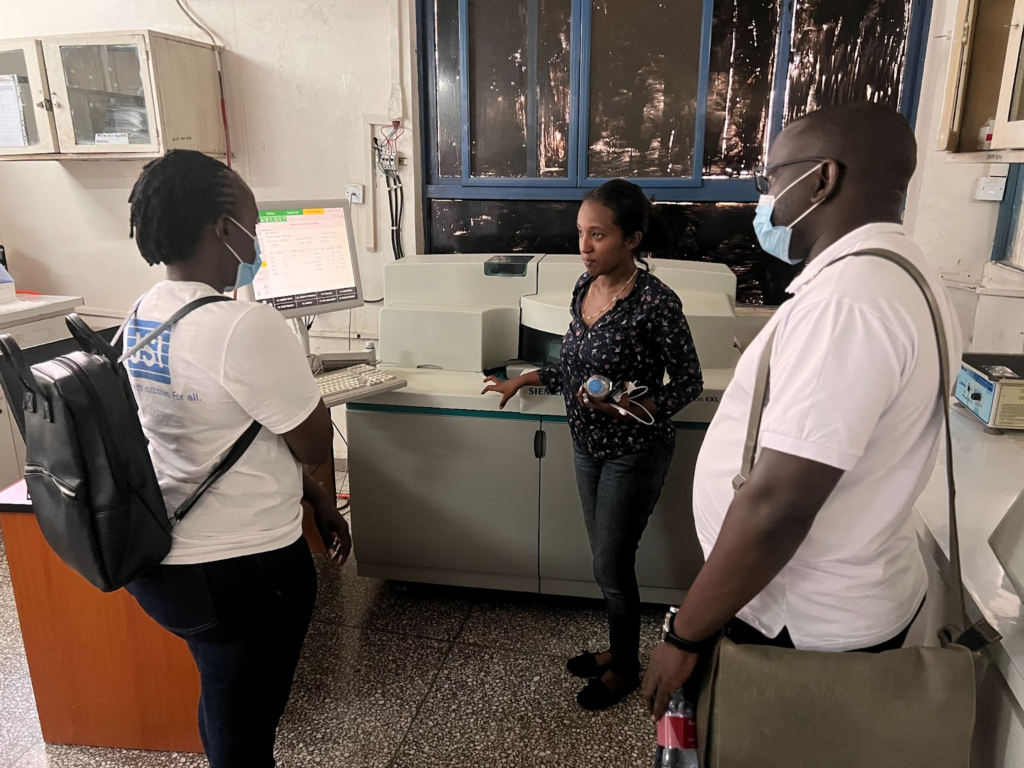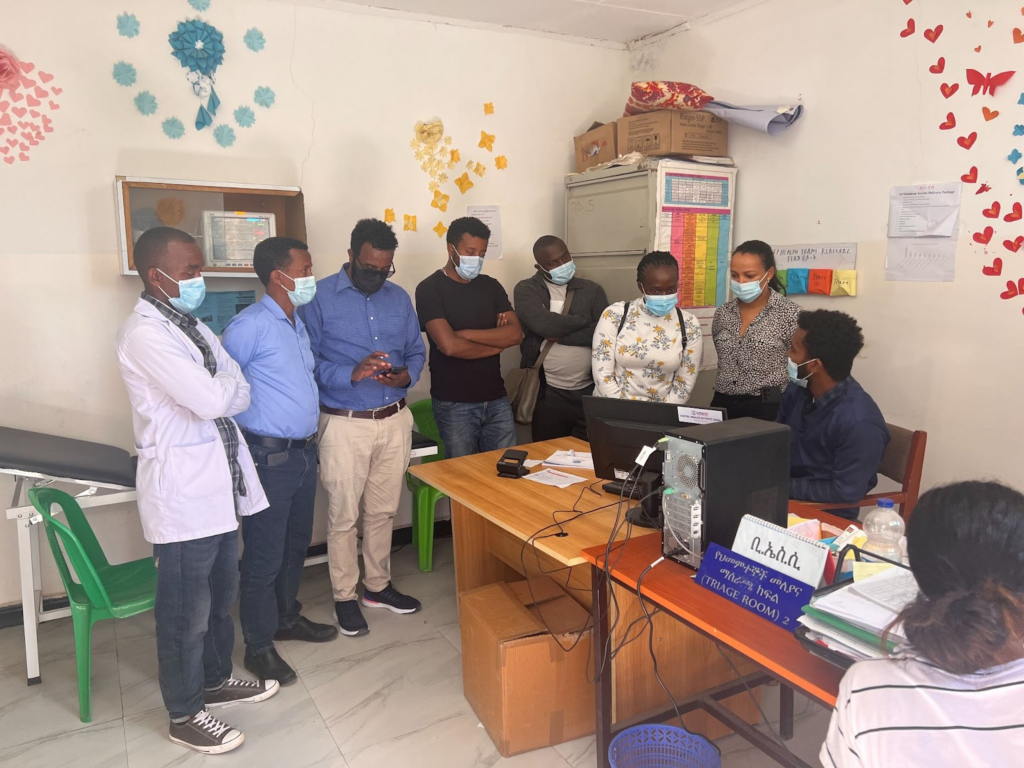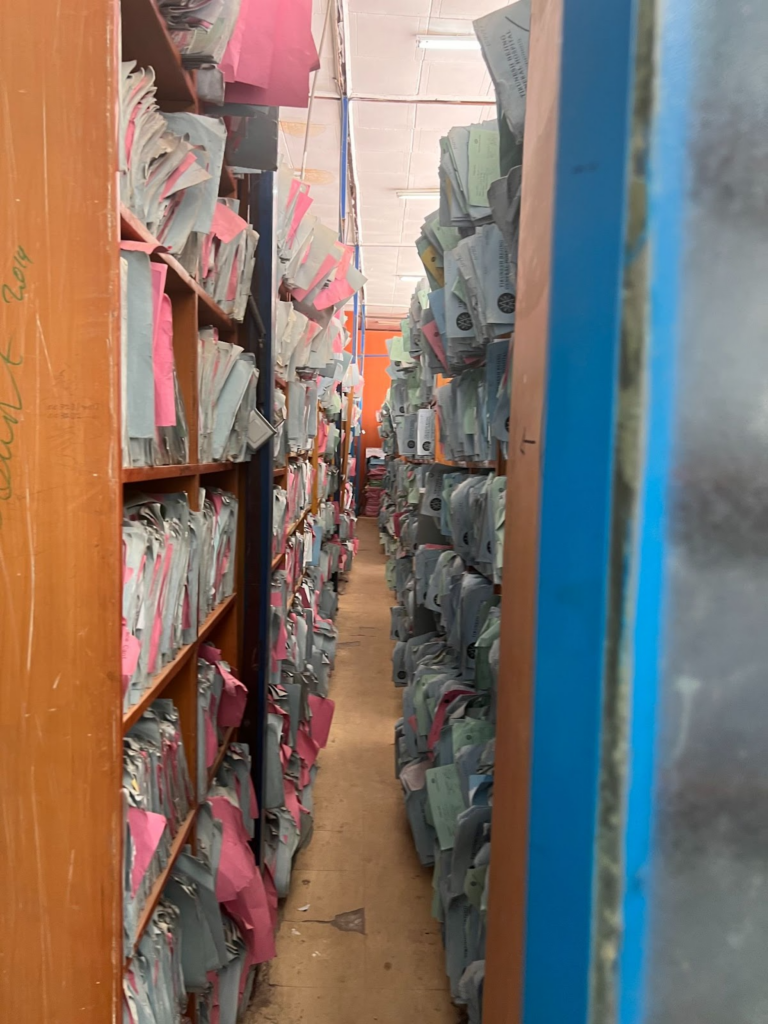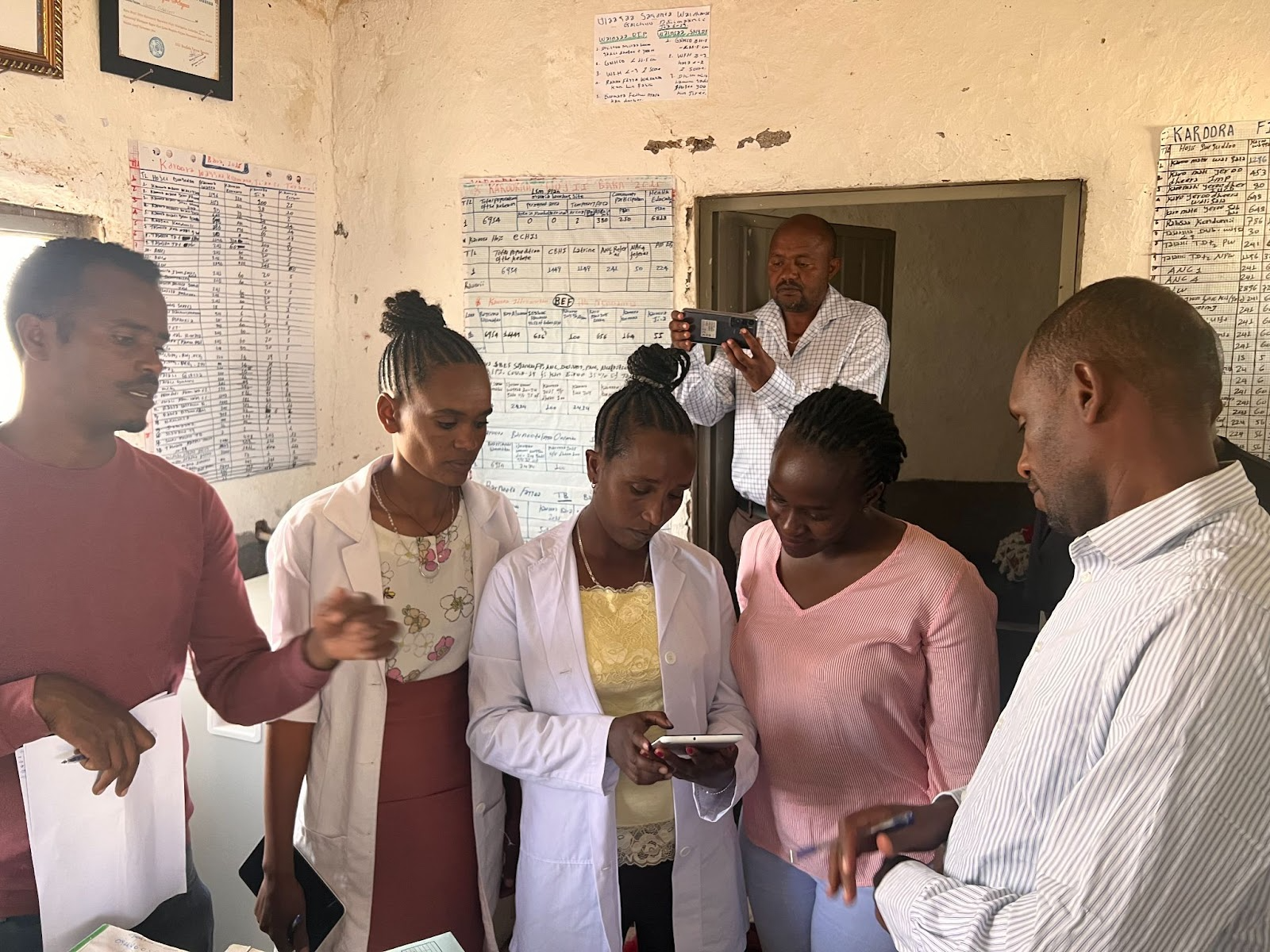No Reinventing the Wheel when Digitizing Health Programs: How Uganda and Ethiopia are Learning from Eachother to Strengthen Malaria Responses in Both Countries
“Our work has become easier and faster due to the use of these systems, and patients no longer have to wait as long to get services” – Health worker at Nano Gebriel HP in Ethiopia.
The USAID-funded President’s Malaria Initiative (PMI) Uganda Malaria Reduction Activity (MRA) aims to strengthen malaria prevention at the community and household levels in five of the highest-burden regions (Acholi, Busoga, Karamoja, Lango, and West Nile). The project works with the Government of Uganda to strengthen technical, financial, and leadership capacity at all levels of the health system to increase access to malaria prevention and treatment and reduce new infections. It also helps private for-profit health facilities improve malaria case management and reporting.
In March 2023, the project manager of digitization from Uganda’s Ministry of Health (MOH) and the digital health advisor from PMI-MRA went to Ethiopia to learn how innovations in its health information system, under the USAID-funded Digital Health Activity (DHA), could be applied to the malaria response in Uganda.

Photo: PMI-MRA staff visiting an Ethiopian health post.
DHA is leading an initiative to digitize public health in Ethiopia. DHA works at various levels of the health system: building out tooling for community health workers through the electronic community health information systems (eCHIS), digitizing the country’s health information system (DHIS2) and the human resource for health information system. A critical DHA endeavor is an open-source electronic medical record (EMR) system that gives health professionals access to patient medical data, which is essential to provide high-quality, person-centered care. Paper patient records are now scanned and uploaded into the EMR system, accessible to any clinician or facility and reducing triage unit waiting time from 30 to fewer than three minutes. Other DHA-related gains are increased autonomy and accountability in the health system and a more responsive supply chain system to support it.

Photo: A visit to a health center with EMRs.
The goals of the technical exchange were to gain knowledge of how Ethiopia led national digitization; ensures sustainability; works with partners; and overcomes challenges, and to see how DHA is building an interoperable system to facilitate health information-sharing.
“Our colleagues in Ethiopia walked us through the guidelines for digital health tool implementation. They explained how critical it is to continuously adapt these tools and ensure involvement of parties within and outside the health system” said Carol Kamasaka, digital health advisor for PMI-MRA.
DHA is a long-term endeavor that develops and reviews curricula and eLearning materials at universities and training institutions across the country. The project has supported the development of in-service professional development curriculum and created mentors for capacity building.
“Health facilities manage their data and conduct routine performance review meetings at which heads of service units review their data before submitting to the DHIS2,” continues Carol.

Photo: Scanning files into the EMR system has eliminated miles of paperwork and improved data accuracy and accessibility.
The success of the EMR system also relies on the investment the government has made in a virtual private network that health care providers use to access the health information system. Privacy upgrades for this server prevent unauthorized users from accessing patient data. The PMI-MRA team will support the MOH to adopt some of these best practices.
“Malaria starts in communities… deploying digital health tools like eCHIS and equipping our community health workers with tools and information can enable us to get real-time information on malaria cases and deploy interventions to reduce severe cases and death,” said Carol. “A number of malaria-related deaths occur in the community but these data are barely captured. We can do more to track and capture information to find ways to prevent malaria.”
